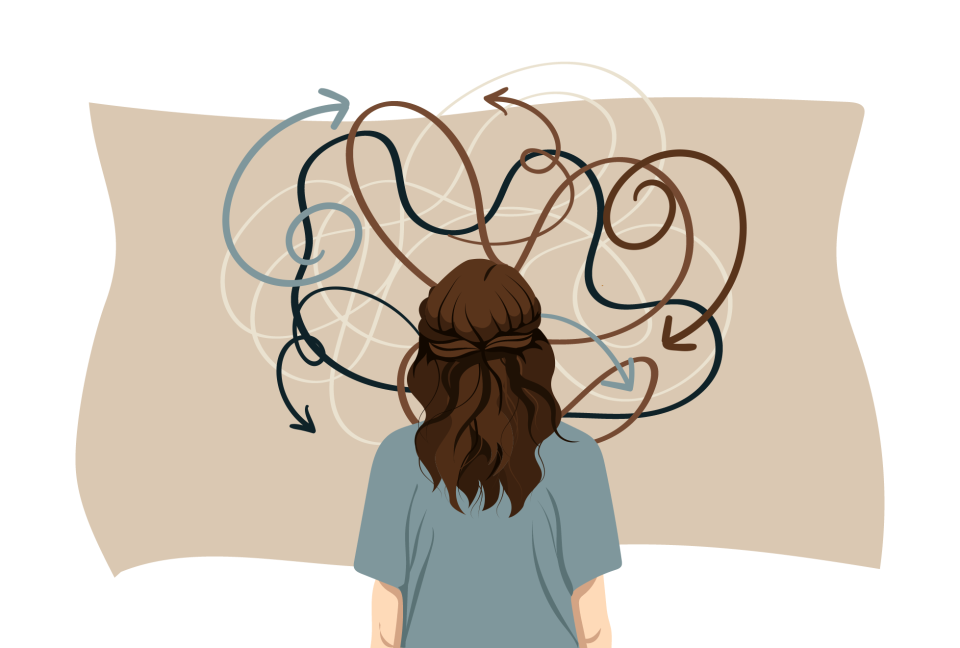Women are more likely to exhibit distinct symptoms from males. Have you ever heard that you’re a “selective listener” or prone to making mistakes? Do you need help to focus on specific tasks or keep track of your belongings? You could have ADHD, short for attention to deficit and Hyperactivity.

If this sounds like a stretch, Here’s the reason: When you were growing up in your twenties, you’ve probably been taught that ADHD typically affects young boys and symptoms are an impulsive and hyperactive personality. This means you’re right in thinking that more males and females have ADHD than women and girls and women. In reality, only 4.2 percent of US women are given an ADHD diagnosis, compared to 13 percent of males. But, often, this is because women have different symptoms. To help us gain more insight into this neurologic condition, we contacted Dr. Zoe Martinez, Clinical Director, MD, Ph.D., to treat ADHD.
What is ADHD?
“Attention deficit hyperactivity disorder is a brain disorder that results in various symptoms in multiple categories, including problems with attention and concentration, impulsivity, and hyperactivity,” Dr. Martinez. She explains that these signs occur because neurotransmitters are not functioning properly. (Neurotransmitters are chemical messengers that transmit messages from one nerve to another.)
What causes neurotransmitters to be damaged? It’s due to genetics. “People with ADHD have at least one defective gene — the DRD2 gene — that makes it difficult for neurons to respond to dopamine, the neurotransmitter that is involved in feelings of pleasure and the regulation of attention,” Dr. Martinez says. “However, many individuals have other neurotransmitter deficiencies.”
Are there any prevalent symptoms of ADHD in women?
ADHD comes in three forms: predominantly inattentive, predominantly hyperactive-impulsive, and combined inattentive and hyperactive. Although girls and women can be affected by any of these, they are usually typically inattentive. The most frequent symptoms of primarily inattentive ADHD are irritability and trouble completing work that requires constant concentration. Here are some additional typical symptoms:
- Not paying attention to details and making careless mistakes
- It isn’t easy to keep your attention focused on a job
- It appears that they need to pay more attention.
- In a struggle to follow directions
- It isn’t easy to stay organized and lose personal belongings quickly
- Beware of tasks that require constant mental effort
- It is easy to get distracted
These are a few additional signs of ADHD for women, some of which are not as common:
- Excessive talk
- Fidgeting
- Talking in a hurry, without thinking
- It’s like you’re dreaming. However, your mind is racing “a mile a minute.”
- It is easy to make friends. However, you have difficulty maintaining friendships (this could be because you do not remember to text or phone)
- Activities that require intense self-discipline and a lack of healthy self-control
- Utilizing compensatory strategies, are behavioral changes and strategies to can help you overcome your inattention
- Being stuck on a particular project but struggling to get to a new task
What is the reason ADHD diagnosis in women is frequently not recognized?
“Women tend not to have hyperactivity and impulsivity, so if they are quietly inattentive, this may often be missed,” said the doctor. Martinez. Additionally, many women might think they don’t have ADHD and thus won’t take the initiative to seek an assessment.
For example, one woman might think she doesn’t have ADHD because she can focus on specific tasks. While it’s true that lack of concentration is a common symptom, another symptom is hyper-focusing is when someone can focus on a particular task (especially one they like) that they have difficulty transitioning to a new task.
Do women with ADHD who is older than 40 get ADHD medication?
There’s a chance you’re nervous about adding ADHD medication to your regimen when you’ve been for so long. But it can assist in relieving the symptoms. “If a patient meets the criteria for ADHD and has no contraindications to medication, as a psychiatrist, I would absolutely discuss prescribing medication to treat her symptoms,” Dr. Martinez.
The two major types of ADHD medication are stimulants (e.g., Adderall) that immediately boost dopamine and norepinephrine levels in the brain and non-stimulants (e.g., Strattera) that slowly increase levels of norepinephrine over the course of weeks. Some side effects include decreased appetite and weight loss, trouble getting enough sleep, an anxiety disorder, an upset stomach, and changes to heart rate and blood pressure. So your physician may recommend different doses and medications to determine which works best for you.
What other treatments are you recommending?
When you and your doctor can determine that ADHD medication isn’t the best solution for your needs, you have many other options to assist in addressing the symptoms. “Other treatment methods include organizational strategies to help complete work, a regular sleep-wake cycle, a regular exercise schedule, and asking for support from family, friends, and coworkers,” the doctor. Martinez. What is the best way to begin? Please make your appointment with a mental health professional to learn about their recommended strategies.
What is the reason it is important to have a medical diagnosis?
A variety of conditions can mimic ADHD. Many conditions can mimic ADHD, such as anxiety or mood disorders and learning difficulties. This is why it is important to speak with an experienced psychiatrist who will work with you to comprehend the signs and symptoms you are experiencing and provide the appropriate diagnosis. Should it is determined that you do have ADHD and you are diagnosed -or even later in the course of your life — can be beneficial. In the first place, it helps you to know yourself and why you cannot complete certain tasks. A treatment plan can assist you in overcoming any obstacles you may face.

